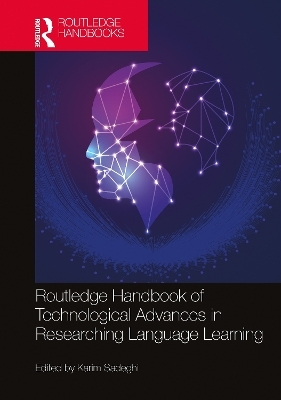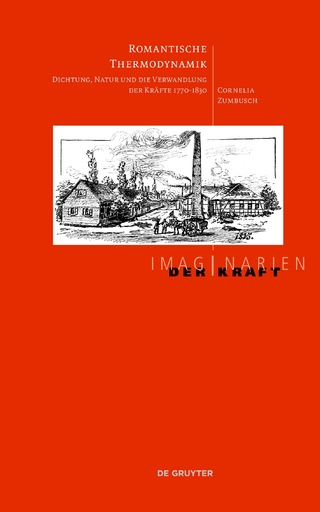
Routledge Handbook of Technological Advances in Researching Language Learning
Routledge (Verlag)
978-1-032-60431-2 (ISBN)
- Noch nicht erschienen (ca. November 2024)
- Versandkostenfrei innerhalb Deutschlands
- Auch auf Rechnung
- Verfügbarkeit in der Filiale vor Ort prüfen
- Artikel merken
The Handbook showcases technological advances, including issues and considerations, affecting research conduction in second language education. The contributions focus on the role of digital technology in researching second language education, second language acquisition, and applied linguistics. Contributions by both seasoned and junior scholars feature empirical studies and methodological and/or theoretical discussions of technological tools used (or tools that can be used) for conducting research into various aspects of second language learning and acquisition.
This book will primarily appeal to academic specialists, practitioners, and professionals in the field of applied linguistics and second language education. The book will also be informative for scholars and professionals in disciplines such as educational technology and TESOL.
Karim Sadeghi is a professor of TESOL/Applied Linguistics at Dhofar University, Oman. Prior to this, he had positions in Urmia University, Iran, and University of Wales Trinity Saint David (UK). He is the Founding Editor-in-Chief of Iranian Journal of Language Teaching Research (a top 12% Scopus indexed journal). His recent publications have appeared in top-tier journals, including System, English for Specific Purposes Journal, and RELC Journal, among others. His most recent book publication, with Dan Douglas, is Fundamental Considerations in Technology Mediated Language Assessment (published in 2023 by Routledge). His other publications include Assessing Second Language Reading (Springer, 2021), Talking about Second Language Acquisition (Palgrave, 2022), Theory and Practice in Second Language Teacher Identity (Springer, 2022, with F Ghaderi), Technology Assisted Language Assessment in Diverse Contexts (Routledge, 2023).
List of Contributors
Foreword: Dorothy M. Chun
Acknowledgements
Chapter 1. Technology in Researching Language Learning: An Overview
Section 1: Technology and Data Collection in Applied Linguistics Research: Options and Considerations
Chapter 2. Online data collection in applied linguistics
Chapter 3. Collecting ‘real’ data in Virtual Reality (VR) settings: Best practices
Chapter 4. The use of screencasting in corrective feedback research: Advantages and limitations
Chapter 5. The role, nature, and challenges of the use of online testing methodology in measuring language instruction (structured input and textual enhancement)
Chapter 6. The role of digital technology in second language listening assessment and pedagogy research
Chapter 7. Automated grammatical error correction in researching written learner language
Chapter 8. Digital language portraits in multilingualism research
Chapter 9. Researching technology-enhanced oral feedback in L2 learning: A methodological review
Chapter 10. Technological innovations in researching language assessment: A scoping review
Chapter 11. Ethical concerns and considerations for videoconferencing interviews in Applied Linguistics research
Section 2: Technology and L2 Learning Research: Empirical Studies
Chapter 12. Using game-mediated digital tasks to elicit data on incidental vocabulary learning
Chapter 13. Designing computer-assisted language learning tools as platforms for data collection in applied linguistics
Chapter 14. YellowDig discussion board as a tool for researching L2 learning
Chapter 15. Stimulated recall interviews using digital technology in L2 research
Chapter 16. Exploring the role of technology in capturing complex learning environments
Section 3: Technology and Second Language Processing/Psycholinguistics Research
Chapter 17. Electroencephalography with iMotions in language learning research: Opening the ‘Black Box’
Chapter 18. Conducting web-based experiments in L2 psycholinguistic research
Chapter 19. Eye-tracking in reading research: What it is, what it is not, and what it may become
Chapter 20. Eye-tracking and self-paced reading: Evaluation of experimental technologies in investigating the processing of relative clause sentences by Japanese L2 learners of English
Chapter 21. Using millisecond timing of typewritten production to understand lexical processing in non-Latin scripts: Evidence from Persian
Chapter 22. Keylogging and screencasting to help investigate L2 writing processes
Section 4: Technology and Language Teacher Education Research
Chapter 23. The affordances of video conferencing for evidence-based reflective practice and multimodal corpus research in teacher education practicum contexts
Chapter 24. Enhancing research in teacher wellbeing through digital technology
Chapter 25. Technology-supported interviews in Applied Linguistics research: Dialogic data collection
Chapter 26. Unveiling the digital canvas: Technology’s role in language teacher education research
Chapter 27. Redefining digital technologies in teacher education and professional development research: An integrated evaluation approach
Section 5: Technology and L2 Pragmatics Research
Chapter 28. Technology-enhanced data collection methods in L2 pragmatics research
Chapter 29. Spoken Dialogue Systems and ChatGPT for second language pragmatics research
Chapter 30. Researching L2 interactional repertoires in Zoom-mediated environments
Chapter 31. Using high immersion social virtual reality environments for researching interculturality
Section 6: Technology and Conducting Literature Reviews and Meta-Analyses
Chapter 32. Systematic reviews in applied linguistics: Tools and frameworks
Chapter 33. Study screening for meta-research: An overview of AI tools
Chapter 34. A corpus approach to systematic literature reviews
Section 7: Technology and Analysing L2 Data
Chapter 35. Machine Learning (ML) tools for measuring second language (L2) intelligibility
Chapter 36. Affordances of screencast technology for analyzing engagement with computer-mediated feedback on L2 writing
Chapter 37. Corpus linguistics in second language vocabulary research
Chapter 38. Conclusion: Where next?
Index
| Erscheint lt. Verlag | 30.11.2024 |
|---|---|
| Zusatzinfo | 43 Tables, black and white; 45 Line drawings, black and white; 61 Halftones, black and white; 106 Illustrations, black and white |
| Verlagsort | London |
| Sprache | englisch |
| Maße | 174 x 246 mm |
| Themenwelt | Schulbuch / Wörterbuch ► Wörterbuch / Fremdsprachen |
| Geisteswissenschaften ► Sprach- / Literaturwissenschaft ► Anglistik / Amerikanistik | |
| Geisteswissenschaften ► Sprach- / Literaturwissenschaft ► Literaturwissenschaft | |
| Geisteswissenschaften ► Sprach- / Literaturwissenschaft ► Sprachwissenschaft | |
| ISBN-10 | 1-032-60431-X / 103260431X |
| ISBN-13 | 978-1-032-60431-2 / 9781032604312 |
| Zustand | Neuware |
| Haben Sie eine Frage zum Produkt? |
aus dem Bereich


